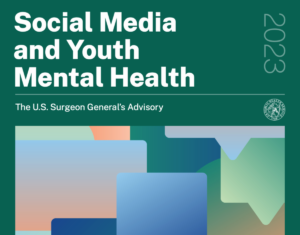
C. Ben Mitchell, Ph.D.
Distinguished Fellow
The Tennessee Center for Bioethics & Culture
Adam Kirsch, The Revolt Against Humanity: Imaging a Future Without Us (Columbia Global Reports, 2023)
In this dystopian non-fiction work, Kirsch, an editor at the Wall Street Journal, claims that the future will be better off without human beings. As he puts it in the introduction, “the premise of the book is that the revolt against humanity is a real and significant phenomenon even if it is “just” an idea, and its predictions of a future without us never comes true.” The revolt against humanity is, as he puts it, “a spiritual development of the first order, a new way of making sense of the nature and purpose of human existence.” How will humanity end? Two trajectories are offered. The first is Anthropocene antihumanism. Since human beings, the argument goes, are responsible for the contamination of the so-called pristine natural world, human polluters should self-engineer their own obsolescence by not reproducing. Humanity ceases to exist. The second option is transhumanism. Through technological adaptations human beings can escape their embodied existence into a digitized posthuman habitation. Humanity ceases to exist. The volume is a manifesto for the nihilism of an atheistic, materialist worldview.
The U. S. Surgeon General’s Advisory, Social Media and Youth Mental Health (2023)
Up to 95% of American youth ages 13-17 report using social media platforms, with more than a third saying they use social media “almost constantly.” And despite the fact that most social media platforms require users to be at least 13, nearly 40% of children 8-12 are regular users. What does this mean for the mental health of adolescents? Not a doomsday document, the report suggests that there are some benefits of social media among some teens. At the same time, there are quite serious potential mental health harms of social media from the exposure to certain content, excessive time spent, and problematic use. The report concludes with recommendations for technology companies, parents and caregivers, children and adolescents, and researchers. Everyone should read the report and then follow up with Jean Twenge’s volume, iGen: The 10 Trends Shaping Today’s Young People – and the Nation, or even better, Mary Swingle’s, i-Minds – Second Edition: How and Why Constant Connectivity Is Rewiring Our Brains and What to Do About It. A friend says that he would rather give his children a chain saw than a smart phone; at least they’ll know the chain saw is dangerous. Enough said.
 Ned Bustard, Luci Shaw, et al., Ordinary Saints: Living Everyday Life to the Glory of God (Square Halo Books, 2023)
Ned Bustard, Luci Shaw, et al., Ordinary Saints: Living Everyday Life to the Glory of God (Square Halo Books, 2023)
Nearly 50 short essays and works of art by a cadre of Christian creatives. Meditations are offered on home repairs, pipes, knitting, brokenness, chickens, juggling and so much more. It’s a book by real people for real people who live in a sometimes painfully real world. Contributors range from graphic designer and author Ned Bustard to poet and priest Malcolm Guite, and from independent bookshop owner Byron Borger to psychiatrist Curt Thompson. The volume is devotional, instructional, and beautiful. The essays are a nice way to begin or end the day—and sometimes to read in between.




